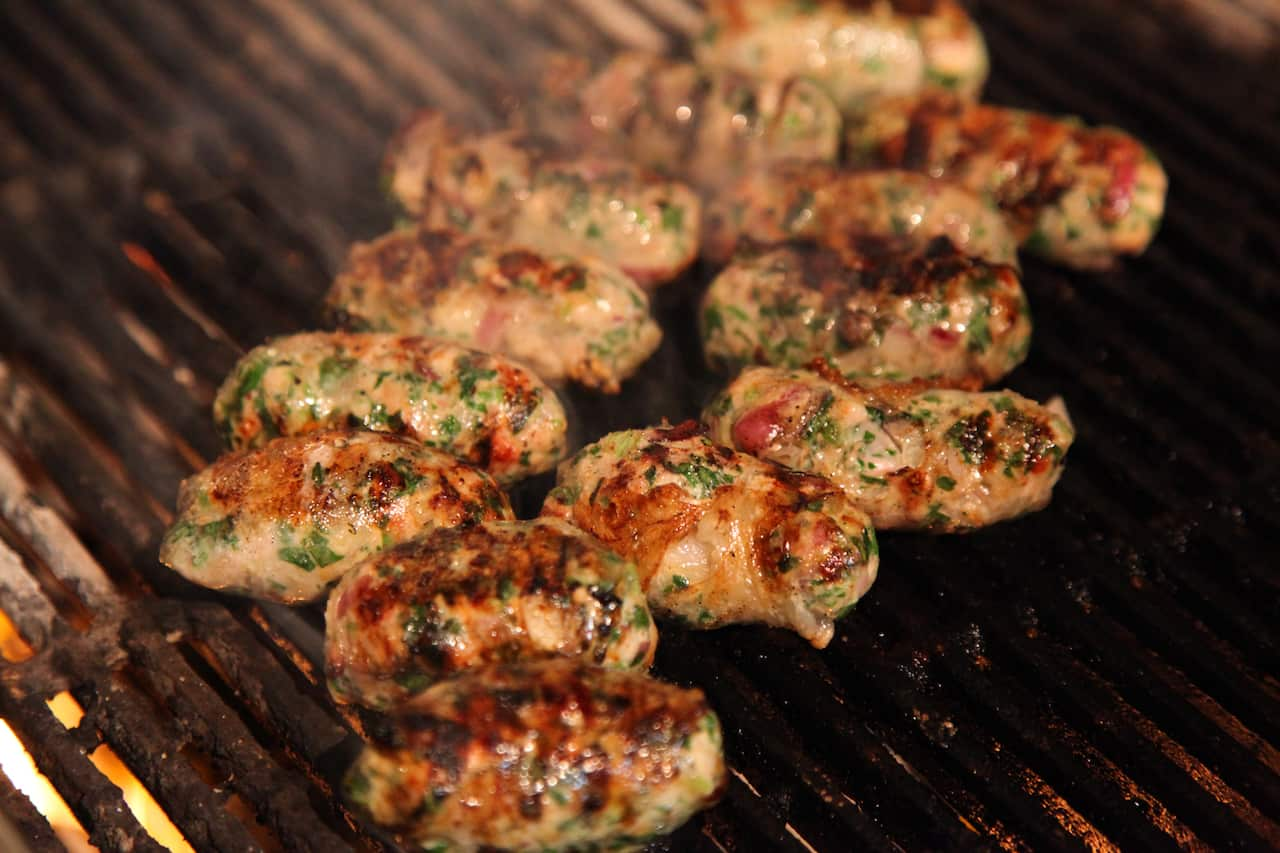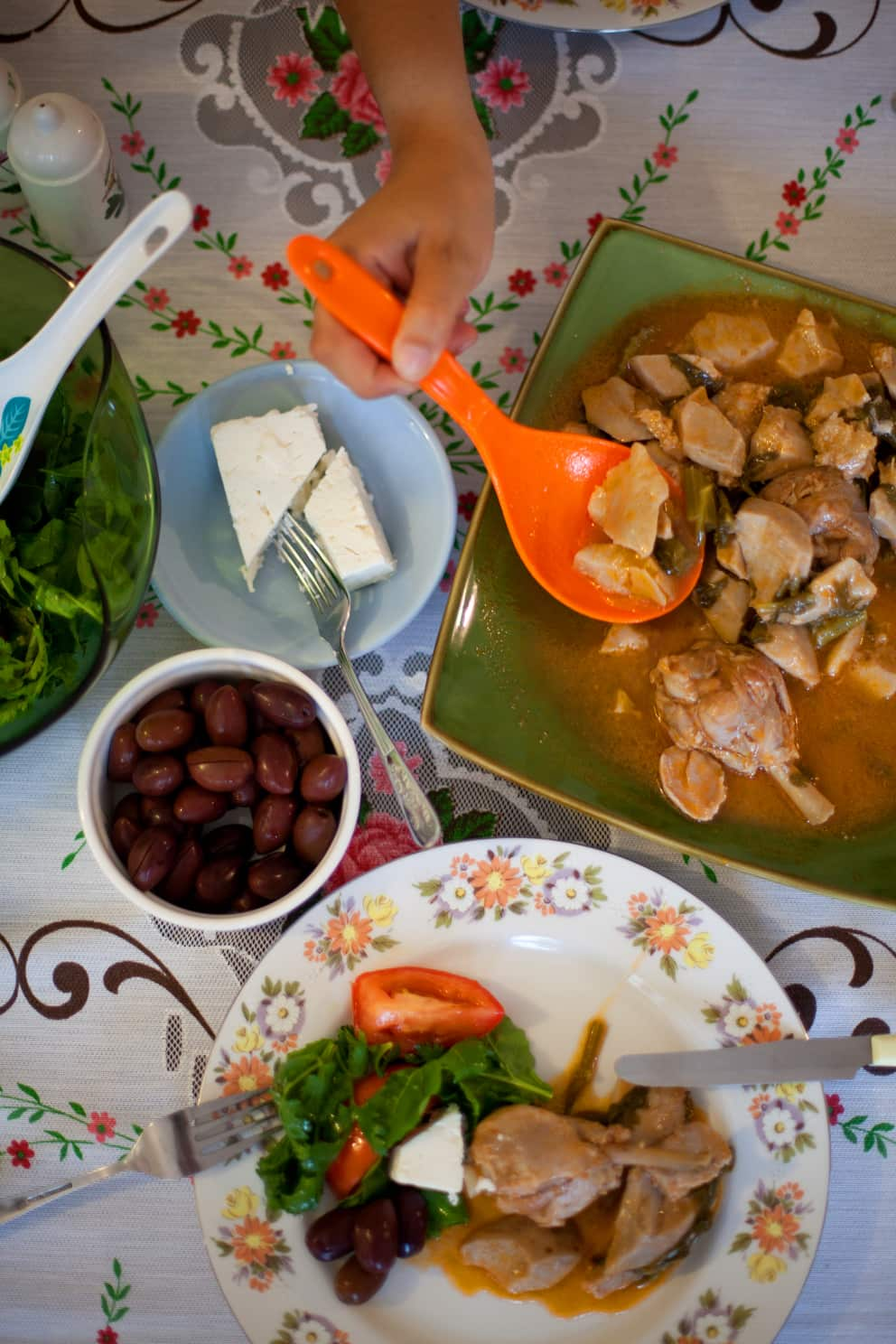With its hot dry summers, relatively mild winters and seemingly endless sunshine, it is little surprise that winemaking has been of great importance in Cyprus for millennia. Wine has been enjoyed in abundance on the island – and even exported – since Greek, Roman and Egyptian times, and is still an integral part of its cuisine, enjoyed with food and put to good use as a marinade for meats and seafood.
Perhaps it’s just as well, then, that this Mediterranean diet is one of the healthiest in the world. As in neighbouring Greece, cooks make the most of locally available fresh ingredients: grains and pulses, fresh fruit, vegetables, herbs, lean meat, seafood and olive oil. But the island’s geographical position and history have shaped its cuisine further – through trade with the Middle East, British colonisation, French and Italian occupation, Turkish invasion in 1974, and the ongoing division between the Turkish Cypriot north and Greek Cypriot south. Expect to see local twists on traditional Greek and Turkish dishes, with tastes of Europe and the Middle East.

The order of the day is hearty, fresh peasant dishes – well seasoned but not spicy – based on recipes handed down through the generations. Home cooking is an important feature of everyday life, and hospitality deeply ingrained in the Cypriot psyche. Thus an informal weekend meal with extended family and friends, at home or at a restaurant or taverna, might seem to involve a cast of thousands! Feasting – on religious days, birthdays, weddings and countless name days, just for starters – means eating, singing and joking, accompanied by wine and zivania, a strong spirit similar to vodka.
In this kind of setting, the Cypriot preference for meze-style dining makes a lot of sense. A large selection of dishes – up to 30 – is brought to the table, with guests invited to take small helpings in a progression of tastes and textures. It’s the perfect introduction to Cypriot food as meze usually includes a few island specialties, such as cracked green olives with coriander seeds, grilled haloumi cheese, kofta (bulgur wheat pastry filled with spiced lamb and deep fried until crisp and brown) and koupepia (stuffed vine leaves).
An ancient tradition sees meat and vegetables roasted over coals in a fourno, or sealed oven – as in kleftiko (lamb slowly cooked with potato and lemon). But Cypriots have also mastered the barbecue, and favourite meat dishes include souvlakia (skewers of pork or lamb) and sheftalia (pork, lamb, onion and parsley wrapped in caul fat, barbecued and typically served in pita or flatbread with salad). Family or village recipes for curing meats and making sausages are prized and handed down through generations. These might include loukaniko (pork sausages) and their Turkish flavoured counterpart, beef and lamb pastourna, or lountza (smoked pork loin). Meat is marinated in wine and spiced with local herbs such as coriander, thyme and bay leaf, and branches and leaves from the local herbal shrubs are used in the smoking process.

Although Cyprus is an island, the area is not particularly rich in fish. Thus the seafood dishes on offer might tend towards octopus tenderised in red wine, cuttlefish rings or small deep-fried fish.
For dessert, Cypriots enjoy fresh fruit but also specialise in very sweet cakes and pastries, favouring honey, fruits, nuts and pastry. Honey is drizzled over loukoumades or lokmades (small doughnuts), and syrup is poured over the traditional semolina cake kalo prama, which translates as "good thing". Haloumi, sultanas and mint are a heavenly match in the sweet Easter pies flaounes. And every Cypriot pantry will contain jars of home-made glyko, a preserved fruit in syrup that is customarily offered to guests in a spoon, perhaps with coffee but always with a glass of water.
Cypriots are proud of their sweet wine commandaria, one of the oldest named wines in the world and supposedly first made for Richard the Lionheart. Another drink for the brave is the grape-based white spirit zivania, which dates back to the 14th century. With an alcohol content that can range from 40 to 99 per cent, it packs quite a punch!
View our Cypriot recipe collection here.

SBS Food is a 24/7 foodie channel for all Australians, with a focus on simple, authentic and everyday food inspiration from cultures everywhere. NSW stream only. Read more about SBS Food
Have a story or comment? Contact Us
